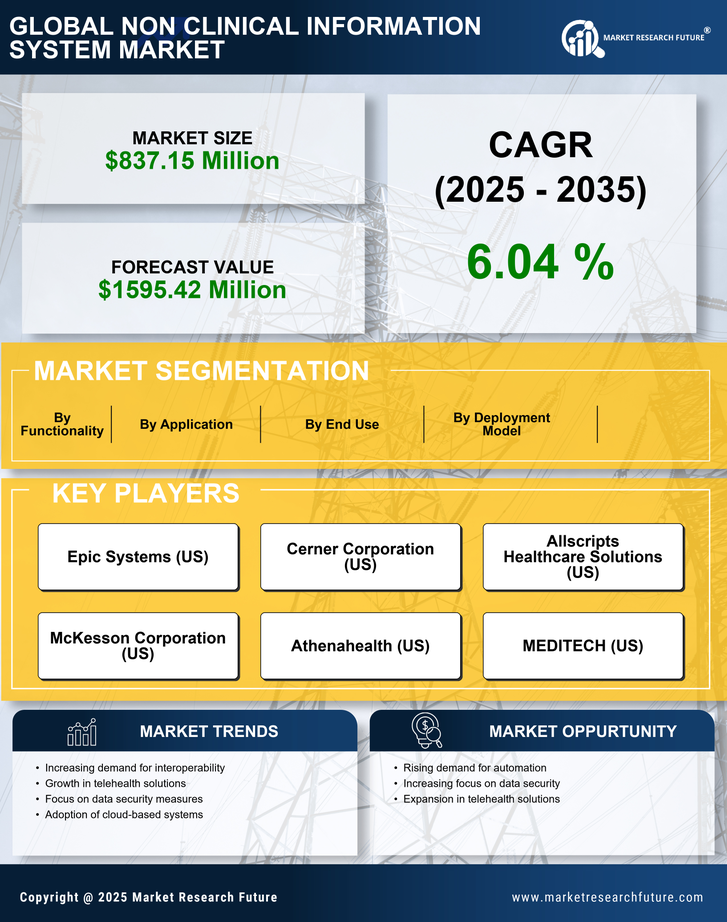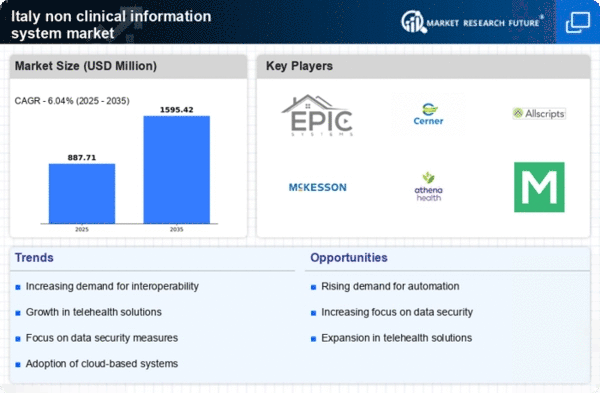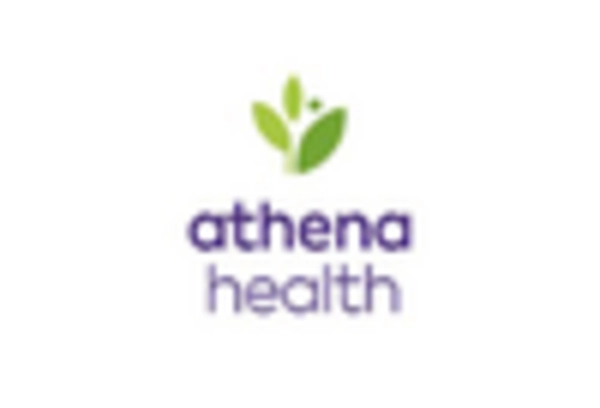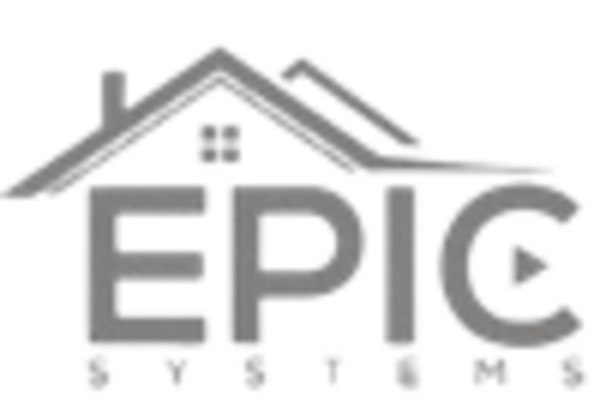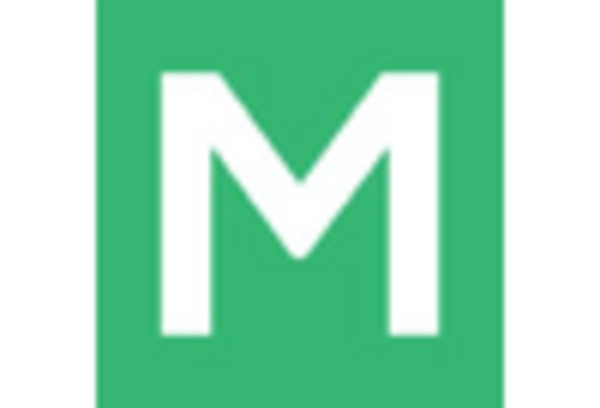Increased Focus on Patient Experience
The non clinical-information-system market in Italy is witnessing a shift towards enhancing patient experience. Healthcare organizations are recognizing the importance of patient satisfaction and engagement in driving overall success. This focus is leading to the adoption of non clinical-information-systems that facilitate better communication, appointment scheduling, and feedback collection. As a result, the market is expected to grow at a rate of around 6% as organizations invest in solutions that prioritize patient-centric approaches. By improving the overall patient journey, healthcare providers aim to foster loyalty and improve health outcomes. Consequently, the demand for innovative non clinical-information-systems that support these objectives is likely to increase, further propelling market growth.
Growing Demand for Operational Efficiency
The non clinical-information-system market in Italy is experiencing a notable surge in demand for operational efficiency. Organizations are increasingly seeking solutions that streamline administrative processes, reduce costs, and enhance productivity. This trend is driven by the need to optimize resource allocation and improve service delivery. According to recent data, the market is projected to grow at a CAGR of approximately 8% over the next five years. This growth is indicative of a broader shift towards automation and digital transformation within the healthcare sector. As healthcare providers aim to minimize waste and maximize output, the adoption of non clinical-information-systems becomes essential. Consequently, vendors are focusing on developing innovative solutions that cater to these operational needs, thereby driving the market forward.
Regulatory Compliance and Standardization
In Italy, the non clinical-information-system market is significantly influenced by the increasing emphasis on regulatory compliance and standardization. Healthcare organizations are required to adhere to stringent regulations regarding data management, patient privacy, and operational protocols. This regulatory landscape compels organizations to invest in non clinical-information-systems that ensure compliance with national and EU regulations. The market is expected to witness a growth rate of around 7% as organizations prioritize systems that facilitate adherence to these regulations. Furthermore, the standardization of processes across healthcare facilities is becoming a critical factor in enhancing interoperability and data sharing. As a result, the demand for compliant non clinical-information-systems is likely to rise, propelling market growth in the coming years.
Technological Advancements in Healthcare IT
Technological advancements are playing a pivotal role in shaping the non clinical-information-system market in Italy. The integration of cutting-edge technologies such as cloud computing, big data analytics, and mobile applications is transforming how healthcare organizations manage their operations. These innovations enable more efficient data handling, improved patient engagement, and enhanced decision-making processes. The market is projected to expand by approximately 9% as organizations increasingly adopt these technologies to stay competitive. Moreover, the rise of telehealth and remote monitoring solutions is further driving the demand for sophisticated non clinical-information-systems. As healthcare providers seek to leverage technology for better service delivery, the market is likely to witness a robust growth trajectory.
Rising Investment in Healthcare Infrastructure
In Italy, the non clinical-information-system market is benefiting from rising investments in healthcare infrastructure. The government and private sector are increasingly allocating funds towards modernizing healthcare facilities and enhancing operational capabilities. This investment trend is expected to drive the market growth at a CAGR of approximately 8% over the next few years. As healthcare organizations upgrade their infrastructure, the need for efficient non clinical-information-systems becomes paramount. These systems are essential for managing administrative tasks, optimizing workflows, and ensuring effective resource utilization. Furthermore, the emphasis on building smart healthcare facilities is likely to create new opportunities for vendors in the non clinical-information-system market, as organizations seek to integrate advanced technologies into their operations.
